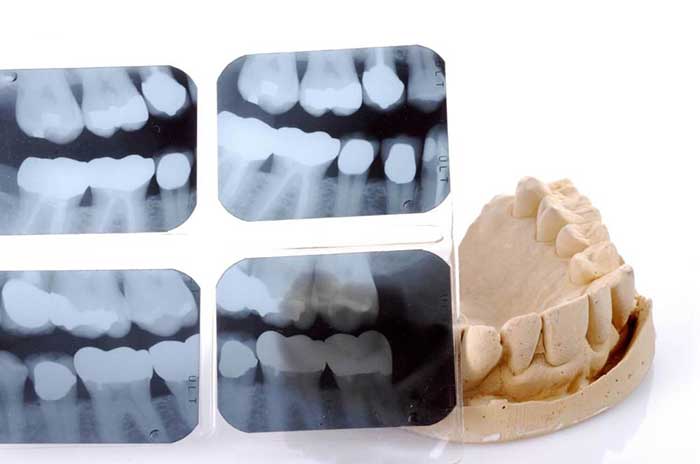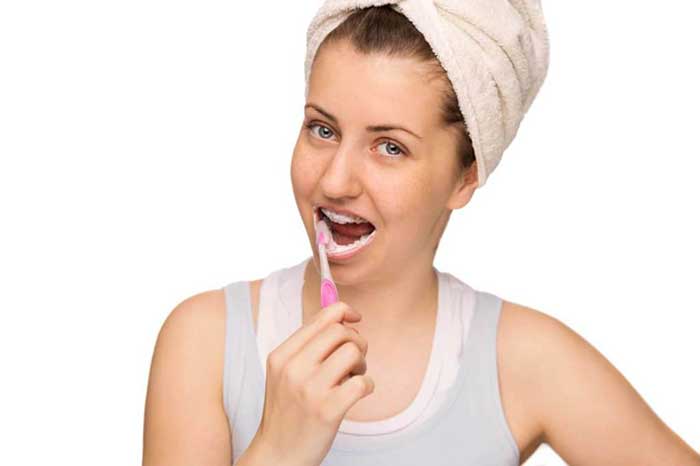How Smoking Affects Oral Health
By now everyone should know that smoking cigarettes can have a lasting and damaging effect on your entire body. The inhalation of carcinogens, tar, and smoke can resonate throughout the body, starting in the mouth? the gateway to the body
The basic effects of smoking can cause bad breath, tooth discoloration, and buildup of plaque and tartar on the teeth. Do habitual long-term smokers experience a range of effects including loss of bone within the jaw, inflammation of the salivary glands, increased risk of developing leukoplakia? grey or white patches on the tongue, gums, or roof of the mouth? a higher risk of developing gum disease, increased risk of tooth loss, and increased risk for oral cancer. That is a lot of risks! At Cooley D.D.S. we want you to be wise to all the harms that smoking causes to your oral and overall health.
Smokers run a higher risk of developing gum disease. Smoking affects your gum’s health by breaking down the soft tissue and bone that anchor teeth into the jaw. As the tissue and bone erode, pockets develop around the teeth where bacteria and plaque accumulate. Although some smokers will notice bleeding gums while brushing, many never notice any signs of gum disease and go for an extended period before seeking treatment. Prolonged erosion can lead to tooth decay and tooth loss, as the pockets around each tooth deepen and the tissue and bone wear away.
Smoking hinders the healing process in the mouth because smoking affects blood flow to the gums. ?Even after treatment is sought for dental ailments, the healing process for smokers is slower and more difficult. Smokers who opt for complex treatments such as implants and oral surgeries have a lower success rate and a longer recovery period than non-smokers. Dental work such as crowns and bridges are affected by the bone recession.
Oral cancer is one of the most alarming concerns for those who smoke. According to the American Cancer Society, around 90% of patients with oral cancer and certain types of throat cancer have used tobacco, and are six times more likely to develop these cancers than non-smokers. The longer a person continues to smoke, the greater the increased risk of cancer.
Smokers might often have visible effects on their dental health, such as increased tartar buildup and discoloration of the teeth, but many exhibit little to no extremely visible signs of gum disease. Having bi-annual dental exams is extremely important because there is a good chance of diagnosing any possible oral health conditions before noticeable and often painful symptoms occur. Dr. Cooley can also further explain how smoking will affect your teeth and gums. Preventative care, which includes a plan to completely quit smoking, is a sure-fire way to reduce your risk of developing symptoms.
Here at Cooley D.D.S., we have put together this list of major ways that smoking impacts your oral health. We want you to have a beautiful? and a healthy smile? for a long time to come!

Oral Cancer
Smoking contributes to cancers of your mouth, gums, tongue, lips, and throat. The risk for oral problems increases for the individuals who are smokers, and in most cases, oral cancer is not discovered until it is far advanced.
Stained Teeth
A smoker’s mouth is not a pretty sight due to the unattractive yellow stains that tar and nicotine leave on your teeth. Over a period of time, this discoloration can seep into the tiny cracks in the tooth enamel making the staining permanent.
Gum Disease
Smoking abuses your gums in different ways. It produces more bacterial plaque in your mouth that puts the gums under steady attack. Smokers have lower levels of oxygen in their blood which slows the healing. The gums become infected and your body is less able to deal with it. Compared to non-smokers, gum disease progresses at a more rapid rate in people who smoke.
Cavities
Considering the increased plaque and the gum problems caused by smoking, the smoker is at a higher risk for tooth decay. If you smoke, you are putting your mouth at risk for three times as many cavities compared to those who do not smoke.
Jaw Bone Loss and Tooth Loss
When severe damage to the teeth?s supporting bone has occurred, this is called? advanced periodontal disease. This bone loss cannot be reversed and causes tooth loss as the teeth lose their anchor in the bone. A study by the Academy of General Dentistry (AGD) found that people who smoke a pack of cigarettes a day lose an average of two teeth every ten years.
Leukoplakia
We talked about these guys earlier. They are white and grey patches on the gums and the inside of the cheeks that cannot be easily removed. These lesions can be caused by a variety of things but often appear in the mouths of smokers? almost all of the leukoplakia sufferers are smokers. These lesions cause tremendous discomfort but luckily disappear quickly after a person quits smoking.
Altered Taste and Smell
Your sense of taste and smell become a bit off when you smoke regularly. ?This not only interferes with your enjoyment of food but may actually lead you to add too much salt and sugar when eating. One in five smokers has a less precise sense of taste and smell. Fortunately, if you quit smoking the effect is reversible.

How To Maintain Optimal Oral Health:
- Quit smoking!
- Brush your teeth at least twice daily for two minutes using the technique recommended by Dr. Cooley. This will help remove bacteria and plaque.
- Floss your teeth after brushing. This helps remove additional plaque and food particles from the teeth that a toothbrush cannot reach.
- You should brush, floss, and scrape your tongue daily.
- Use antibacterial mouthwash for added protection against plaque build-up.
- Maintain a healthy diet and healthy eating patterns.
- Schedule regular dental check-ups with us at Cooley D.D.S.
The National Cancer Institute offers tools for both smokeless tobacco users and smokers to help quit. They have? local and online support available? a smartphone application and live online chat sessions with cessation counselors Monday through Friday.
If you live in Germantown or the Mid-South area and have any questions about how smoking affects your oral hygiene and health, stop by our office or call us today! Here at Cooley D.D.S., we want to help you kick your smoking habit to the curb and avoid all the issues that come with it. Do not let your oral and dental health go up in smoke!
